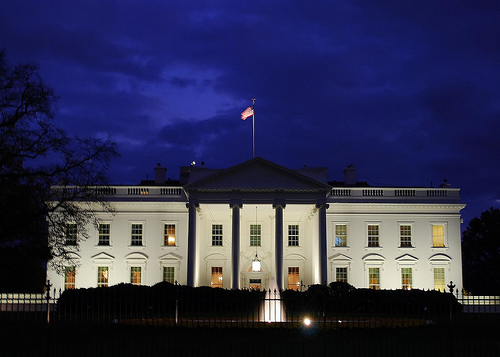Independent for President in 2012: a view from 2010

Though the 2010 midterm elections have not yet even taken place, political commentators and observers are already speculating about possibilities and prospects for the 2012 presidential election.
Likely Republican challengers to Obama/Biden are well-known and need not be rehearsed once more. But, there are also a handful of individuals whose names repeatedly come up in discussions as potential third party and Independent presidential contenders.
In recent weeks, there has been some amount of speculation regarding the political ambitions of Republican Congressman Ron Paul and New York Mayor Michael Bloomberg. This month, Public Policy Polling found that in a hypothetical three-way race between Barack Obama, Republican Mit Romney and Ron Paul as an Independent or third party candidate, Paul checked in with 13% support. This is a significant showing, though it is admittedly not enough to overcome the 15% hurdle for inclusion in presidential debates, at least according to the arbitrary standards set by the Democratic-Republican Commission on Presidential Debates, which has turned the quadrennial forum into little more than a scripted photo-op for the major party candidates.
In a previous poll, Paul has garnered as much as 41% support in a head-to-head match-up with the President, but as the GOP’s nominee. However, according to the PPP’s analysis above, Paul lacks significant support among Republican primary voters, so such an outcome appears highly unlikely.
Nonetheless, the 13% base-level support for Paul’s hypothetical third party presidential candidacy among the general electorate represents a voting bloc to be reckoned with, and potentially capitalized upon by other third party and Independent hopefuls, not to mention the Republicans and Democrats themselves.
Though he continually denies that he has any plans to run for president, New York City Mayor Michael Bloomberg cannot even eat a cheesesteak in Philadelphia without provoking speculation regarding his presidential ambitions. The mayor was recently in Pennsylvania to support US Senate candidate Democrat Joe Sestak. A headline at the New York Daily News politics blog read: “Bloomberg (not running for president) tries to avoid cheesesteak test.” Though the Independent mayor opted not to chow down in front of the cameras, his supporters remain determined to see his name on their presidential ballots, as demonstrated by dedicated websites and Facebook groups.
Perhaps more than anything else, it is this support, and the obvious desire among the wider electorate for viable alternatives to the candidates of the Republican and Democratic parties, that keeps Michal Bloomberg’s name on the short list of potential Independent presidential candidates. Of course, it also helps that he is a billionaire.
On a recent episode of the Chris Matthews Show, the host concluded his broadcast by asking his four guests, “if President Obama’s approval numbers lag into 2012, will we see the first serious Independent candidate for president since Ross Perot in 1992?” The panel essentially reached a unanimous agreement that Bloomberg would likely run for president as an Independent.
Yet, Bloomberg and Paul are arguably beyond their political prime. In 2012, Bloomberg will be 70 years old. Paul will be 77. Depending on the results of this year’s elections, the likes of Paul and Bloomberg may also be eclipsed by any number of third party and Independent candidates for Congress, Senate or Governor. For instance, if any of the many promising Independent candidates for Governor across the country this year are victorious in November, it is likely they will instantaneously be accorded the status of presidential contenders by media and polling organizations. For this reason alone, it should be considered too early to reasonably speculate about the 2012 presidential election.
Personally, I am looking forward to the presidential elections of 2040. If, over the next thirty years, the US electorate proves incapable of retiring the majority of sitting legislators and executives, and if, over the same period, the free market proves incapable of retiring the majority of television talking heads we are forced to tolerate, it is a good bet that by 2040 time itself will have retired them for us.




